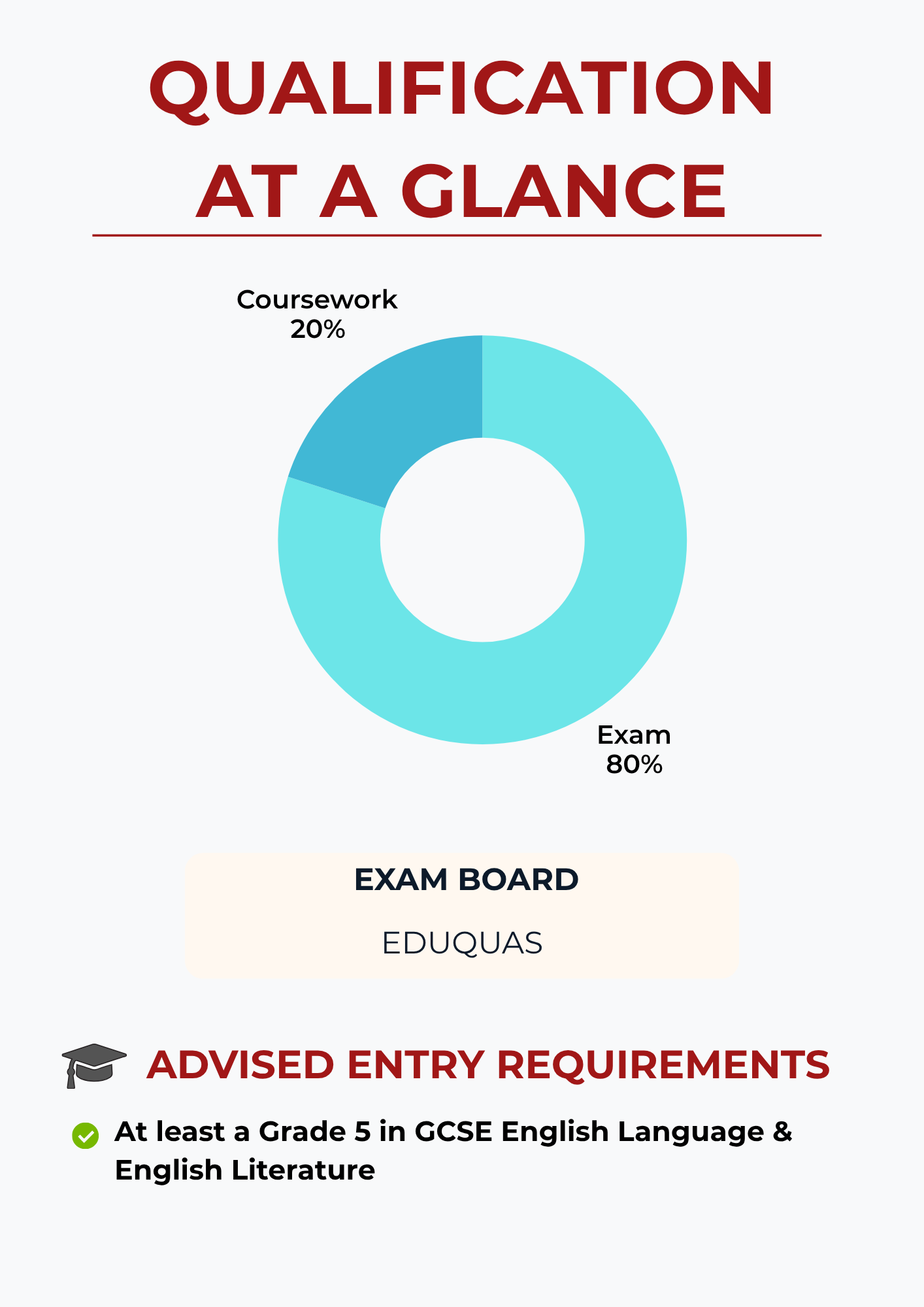A Level English Language (Eduqas)
Why Choose English Linguistics?
English Linguistics combines the science of language with the study of society. In an era of misinformation, artificial intelligence, and rapid digital communication, linguistic insight is vital for understanding the “code” that shapes how we think, connect, and communicate.
You’ll explore:
-
The dangers of political discourse and media manipulation
-
The power of language — from Early Modern English to 21st-century memes
-
The prejudices and assumptions embedded in the ways we speak
Whatever your future path, effective communication and the ability to interpret others’ language are essential skills. English Linguistics helps you master the most powerful tool in the world: language — making you adaptable, critical, and ready for the future.
Exam Board
We follow the Eduqas specification for A Level English Language and Linguistics.
How Is the Subject Assessed?
Assessment takes place over two years through a variety of formats including debates, group presentations, research projects, and written essays.
-
80% of the final grade is based on written examinations
-
20% is based on coursework
What Will You Study?
Component 1 – Language Issues (30%)
-
Spoken Language
-
Language and Power
-
Language and Situation
-
Standard and Non-standard English
-
Language Acquisition
Component 2 – Language Change Over Time (30%)
-
Language Change Over Time
-
21st Century Language
Component 3 – Creative and Critical Writing (20%)
-
Creative Writing (both fiction and non-fiction)
Component 4 – Coursework (20%)
An independent investigation (2,500–3,500 words) exploring one of the following:
-
Language and Self-representation
-
Language and Culture
-
Language and Diversity
-
Language and Gender
Enrichment Opportunities
Through our partnerships with the Royal Literary Fund and the University of Gloucestershire, students engage directly with real writers and linguists. From masterclasses to mentoring, you’ll develop confidence, style, and communication skills that prepare you not just for exams, but for life.
Costs
Students are encouraged to purchase recommended texts for wider reading, although some copies can be borrowed from teachers.
Student Voice
“Studying English at John Kyrle was one of the best decisions I’ve ever made. I chose the course for its strong ties to social and political issues and how language can be used to interpret them — something that has always fascinated me.
The course prepared me for academic writing at university and deepened my love of reading — especially exploring topics like gendered language and how people perceive accents and dialects. The teachers’ passion and support were outstanding.”
— Keira, former student, now studying Politics at the University of Worcester
“Studying English Linguistics at A Level was one of the most rewarding parts of my sixth-form experience. It encouraged me to think critically about how language shapes our world — from conversation and identity to wider social and historical forces.
I especially enjoyed analysing real-life language data and exploring how meaning is constructed in everyday contexts. The course gave me a solid foundation in linguistic concepts and the confidence to pursue Linguistics at university.”
— Emily, former student, now studying Linguistics at the University of Liverpool
